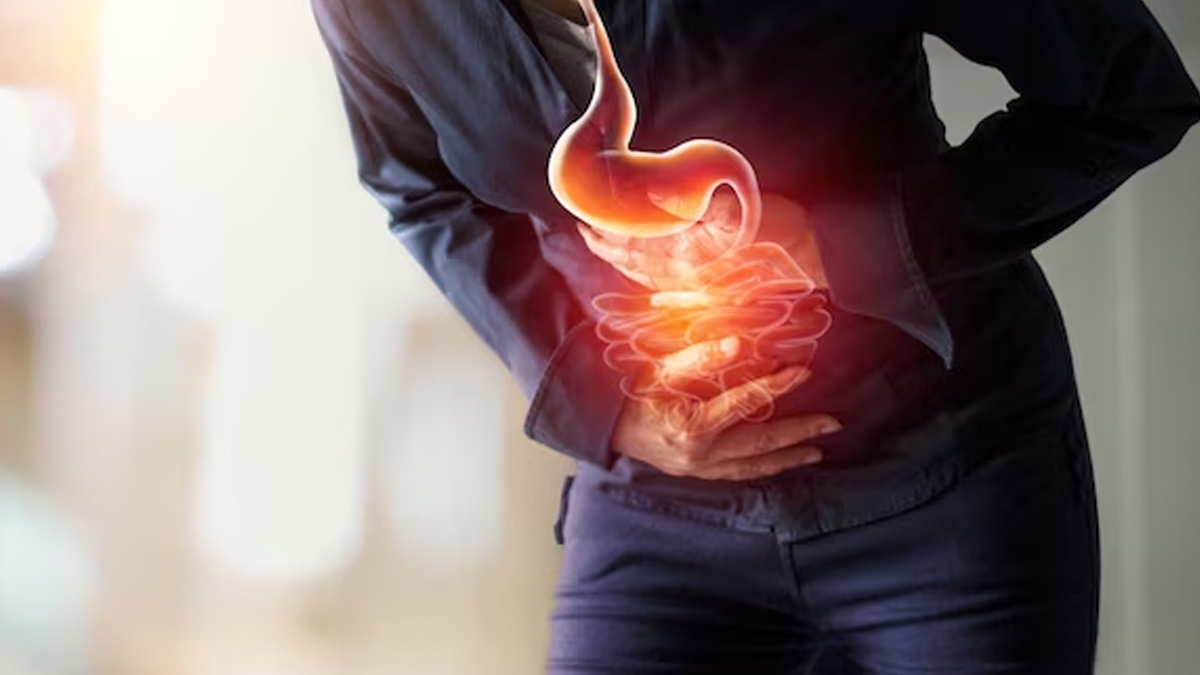
We all experience stress in our fast-paced lives, and it affects people of all ages and backgrounds. While we know it can harm our mental health, we often don't realise it can also harm our bodies, like our digestion. The relationship between stress and digestive problems is complex and interactive, involving a variety of mechanisms. To understand this connection, we spoke to our expert Dr Tejaswini Dande, Gastroenterologist, Apollo Spectra Hospital, Bangalore, who explained how to manage it.
Gut-brain Connection

Dr Dande said, “The gut-brain connection is a bidirectional communication system between the gastrointestinal tract and the brain. This complex network includes the nervous system, immune system, and hormones.”
She added, “During times of stress, the body autonomously produces hormones, such as cortisol and adrenaline. As a result, there is a negative impact on the digestive system, which can lead to problems like indigestion and pain.”
According to a study published in the HHS Public Access, stress and depression don't just make us choose different foods; they can also change how our bodies deal with the food we eat. After eating a fast-food meal, women who had a stressful day the day before burned less fat, had more insulin, and used up fewer calories when they were just resting compared to those who weren't stressed the day before. This could lead to gaining 7-11 pounds of weight each year.
Decreased Blood Flow
Dr Dande noted, “Stress hormones redirect blood flow away from the digestive organs and toward the muscles, preparing the body for a fight-or-flight response. This can reduce the blood supply to the stomach and intestines, impairing their ability to digest food properly.”
Changes In Gut Motility
Stress can affect the movement of the digestive system, causing increased or decreased motility. This may result in symptoms, such as diarrhoea or constipation.
Intake Imbalance
Dr Dande highlighted, “During times of stress, many people start eating more, while some people lose their desire to eat. This dosage imbalance can lead to digestive problems.”
Also Read: Gut Health And Menstrual Cycle: Expert Explains How Poor Gut Health Causes Irregular Periods
Common Digestive Problems Associated with Stress

Irritable Bowel Syndrome (IBS)
Stress is a known cause of IBS, a condition that involves severe constipation, gas formation, and frequent bloating on the same day. Managing stress is an important part of treating IBS.
Gastroesophageal Reflux Disease (GERD)
Dr Dande said, “Stress can increase stomach acid production, resulting in heartburn and acid reflux symptoms. Chronic stress can aggravate GERD, leading to more frequent and severe episodes of acid reflux.”
Managing Stress-related Digestive Problems
Dr Dande listed ways to manage stress-related digestive problems as follows:

Mindful Eating
Practising mindful eating involves paying attention to the food one eats, savouring each bite, and eating slowly. This approach can reduce stress during meals and improve digestion.
Stress Management Techniques
You should incorporate deep breathing skills, meditation, yoga or progressive abdominal muscle-specific alignment into your daily life. These are essential because these practices can reduce stress hormone levels.
Also Read: Unveiling The Gut-Skin Connection: An Expert's Guide to Understanding and Clearing Acne
Regular Exercise
Also, engaging in regular physical activity can reduce stress and improve digestion as well as encourage regular bowel movements.
Balanced Diet
A balanced diet is very important and supports healthy digestion and should be rich in fibre, fruits, vegetables and whole grains. Avoiding food with excess caffeine, alcohol and sugar, can be beneficial as it increases stress and digestive problems.
Bottomline
Dr Dande concluded, “Stress and digestive problems are closely linked. Although it is not possible to eliminate stress, it is important to understand how to maintain overall health and well-being. By adopting stress management strategies and leading a positive lifestyle, individuals can reduce the effects of stress on their digestive system. Prioritising mental health and taking steps to reduce stress can lead to improved digestion and a healthier future.
[Disclaimer: This article contains information provided by a medical professional and is for informational purposes only. Hence, we advise you to consult your expert when experiencing chronic or severe digestive problems related to stress.]







